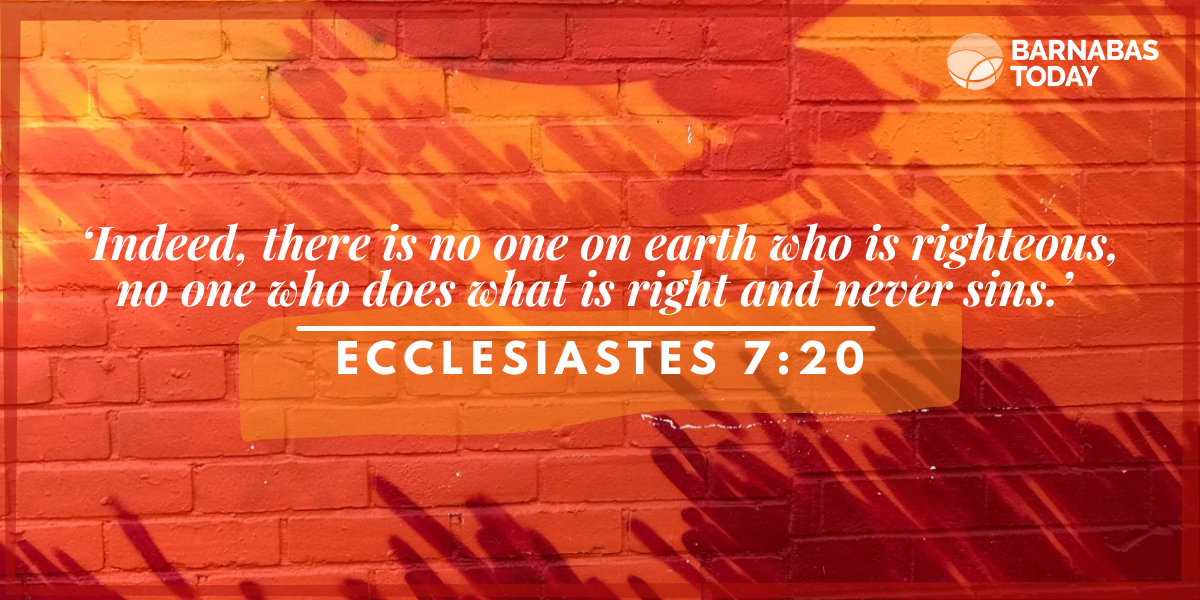
‘Indeed, there is no one on earth who is righteous, no one who does what is right and never sins.’ (v20) Ecclesiastes 7:19–25
I fear living a self-righteous life – living what I believe, but with a superior attitude that others find offensive. Often, when speaking about God’s truth, it’s easy to come across as self-righteous.
It’s useful to reflect on the fact that we’re all fractured people. No one can contribute anything to God’s gracious act in setting us free from sin. The time I take criticizing another might be better spent considering my own battle with sin and by giving thanks for God’s loving acceptance.
The Church can be guilty of appraising sins and attributing a variety of values accordingly. Sadly, sin is the same whether it’s lying or murdering. Whilst the consequences may be different in the degree of their impact, the separation from God remains the same.
A dying thief enjoyed God’s grace with no time to demonstrate the amendment of life (Luke 23:40–43). Restored relationship with God is an act initiated by God alone, one to which we are invited to respond and so lay hold of all salvation’s benefits, both now and eternally.
In response to God’s great gift, we are invited to consider our own life, rather than criticize someone else. Of course, we are always to seek their best interest, which may be to listen or to offer some practical help. How else will anyone see that God is a God of love, until and unless I live a life born of love; this is to live every day with Jesus.

RELATED SCRIPTURE TO CONSIDER: Num. 20:6–13; Prov. 20:5–12; Luke 18:9–14; Rom. 14.
AN ACTION TO TAKE: How do you practise Jesus’ command to love God and your neighbor?
A PRAYER TO MAKE: ‘Lord, give me eyes to see people as You see them, and then to pray and support them in finding grace for their lives. Amen.’
Image by klimkin from Pixabay









